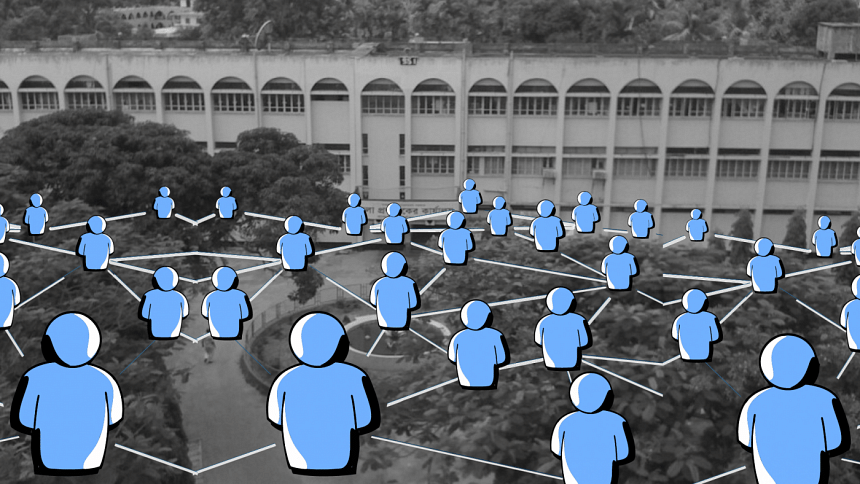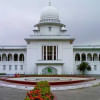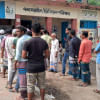Citizen engagement key to improving local government

In order to address the void left by the widespread resignation, desertion, and removal of public representatives—the majority of whom were linked to the now ousted Awami League— to city corporations and all other levels of local government across the country, the interim government has appointed administrators to take their place. This move was made in the face of concerns regarding the absence of leadership in these crucial organisations and the resulting interruption in public services.
This is a wise move on the interim government's part, considering that nearly everyone in charge of the local government institutions was chosen in unfair and unrepresentative elections held during the Awami League regime, and that nearly all of them fled when the former prime minister was overthrown last month. But we have to admit that this is just a Band-Aid solution, and it might not be able to settle all the long-standing issues with these bodies.
In the absence of local government (urban and rural) representatives, government officials such as additional secretaries, divisional commissioners, deputy commissioners, upazila nirbahi officers (UNOs), and assistant commissioners (land) have been assigned to carry on with the responsibilities. These appointees should prioritise the issues that require immediate attention because, as government employees, they should already be familiar with the protocols local government institutions follow.
Maintaining public services and encouraging citizen involvement in local government bodies is crucial for the interim administrators in the event that elected representatives for the local government are not present. I have a number of recommendations to increase public participation in various tiers of local government, thereby enhancing the effectiveness of these bodies even during this interim management.
As is well known, standing committees play a critical role in maintaining the transparency and accountability of local government entities by actively involving members of various groups. Committee activation can further facilitate the provision of services to the impoverished population by utilising the collaborative efforts of multiple departments. Holding casual discussions by the committee members in this regard is crucial to developing connections among the members with different political ideologies.
Delegates of the committees can complete multiple significant tasks at the same time, such as monitoring the actions of the executive branch, conducting specialised investigations, and examining and reporting on the progress of various projects that are being implemented. These committee members can interact with other members who represent a variety of interests and have casual discussions about a wide range of subjects because they are not bound by formal rules. This fosters a congenial atmosphere in which quick decisions on minor issues and technical changes to the system as a whole can be made. Committee meetings serve as a space for dialogue and compromise. Leaders and specialists from civil society may also be able to express their opinions in public venues.
When it comes to natural calamity mitigation strategies like flash floods, disaster management committees are in place according to Standing Orders on Disaster (SOD), ranging from the Union Disaster Management Committee (UDMC), led by union parishad chairpersons, to the National Disaster Management Council, led by the prime minister. The UDMC is composed of 36 members and the chairperson of the committee may co-opt up to three more members in order to form groups and subgroups based on the particular situations and local conditions.
The UDMC has been tasked with serving as the rural disaster management organisation and is expected to contribute to emergency response, mitigation, preparation, and post-disaster rehabilitation. Engaging the community in disaster management committee activities fosters self-assurance, self-respect, and the capacity to pursue local development obligations in addition to disaster preparedness and mitigation.
The system of village court can be maintained as a go-to informal community judicial system in the event that rural people are unable to pursue the mainstream justice system. Although village courts have a lot of promise for informal dispute resolution, Bangladesh's rural poor and marginalised communities still lack access to informal justice, with women especially having difficulty being heard. For impoverished individuals who lack the means to access official legal proceedings, informal conflict resolution continues to be a vital necessity.
Regrettably, this informal conflict settlement system, also known as shalish, is presently recognised for its severe enforcement practices and unjust rulings that are based on outdated customs and local power structures. In the new Bangladesh, such a system must be independent of any influence or prejudice.
The constitution limits the role that members of parliament can play in local government operations to that of advisers alone. That hasn't stopped politicians and central leaders from becoming involved in local development projects, though, and leveraging them for their personal gain. The provision pertaining to an MP's role as an adviser in an upazila parishad is preserved in Article 25 of the Upazila Parishad Act, 2009. This article states that the MP in question, who was not elected to the upazila parishad and does not have voting rights there, must provide the upazila parishad his or her recommendation.
The Upazila Parishad Act's Article 42 (3) permits the parishad to coordinate local development plans with the local MP. Due to MPs' active intervention in development planning and overreach of their advisory role, local administrations in Bangladesh continue to be mainly ineffectual. There have been reports of MPs interfering in local administration and that led to control over public resources, biased distribution, greater risk of misconduct, nepotism, and conflicts of interest. Re-examining Article 25 is a critical and urgent matter for the interim administration to consider.
In order to achieve significant development, it is imperative that local government entities adopt a bottom-up approach that incorporates the public in their decision-making and implementation. The current interim administration must be allowed to grow from its mistakes and learn from the past. A paradigm change in local governance is required, one that includes giving the people who live there a voice and delegating responsibility to them.
I believe the administrators are unable to provide all of the services that mayors or council chairs typically provide for local governments. It is crucial that the people who would now be in charge of these institutions answer to the beneficiaries of their services. With the highest accountability and credibility, the local government institution elections ought to be at the top of the interim administration's priorities following electoral changes. The interim administration can consider forming an expert panel on rural development and local government to support the work of the local government adviser.
Dr Mohammad Tarikul Islam is professor at the Department of Government and Politics in Jahangirnagar University. He has been a visiting scholar and guest faculty at Oxford, Cambridge and Harvard universities.
Views expressed in this article are the author's own.
Follow The Daily Star Opinion on Facebook for the latest opinions, commentaries and analyses by experts and professionals. To contribute your article or letter to The Daily Star Opinion, see our guidelines for submission.

 For all latest news, follow The Daily Star's Google News channel.
For all latest news, follow The Daily Star's Google News channel. 








Comments